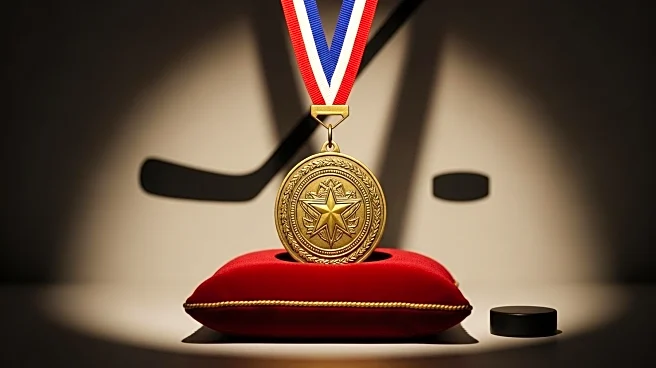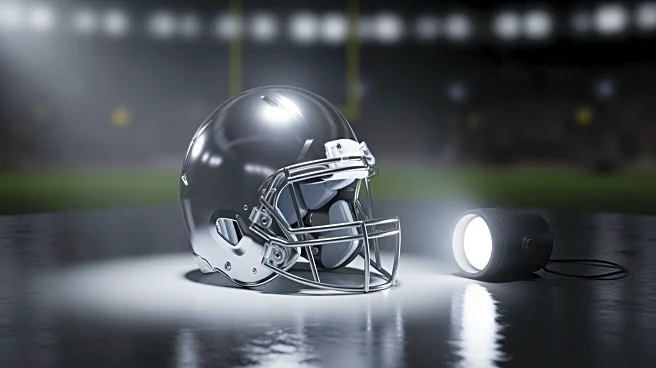What's Happening?
The U.S. Senate has unanimously passed a bill to award the 1980 United States men's Olympic hockey team the Congressional Gold Medal. This team famously defeated the Soviet Union in the 'Miracle on Ice' at the Lake Placid Olympics and went on to win the gold medal. The bill, known as the Miracle on Ice Congressional Gold Medal Act, had previously been approved by the House of Representatives and will return there for a minor amendment before being sent to the White House for President Trump’s signature. Once signed, three medals will be minted and presented at a ceremony on Capitol Hill, with the medals housed at the U.S. Hockey Hall of Fame, the Lake Placid Olympic Center, and the U.S. Olympic and Paralympic Museum.
Why It's Important?
The passage of this bill is significant as it recognizes one of the most iconic moments in American sports history, symbolizing national pride and unity during a challenging period. The 'Miracle on Ice' victory over the Soviet Union was not just a sports achievement but a cultural milestone that inspired generations. Awarding the Congressional Gold Medal, the highest honor from Congress, underscores the team's impact on American society and its enduring legacy. This recognition also highlights the bipartisan support for commemorating historical achievements that foster national pride.
What's Next?
The bill will return to the House for a minor amendment before being sent to President Trump for signing into law. Once signed, a ceremony will be held on Capitol Hill to present the medals, likely followed by events at the White House. This will further celebrate the team's legacy and provide an opportunity for public recognition of their achievements. Stakeholders such as USA Hockey and the NHL have expressed gratitude for the legislative support, indicating potential future collaborations to honor the team's legacy.
Beyond the Headlines
The awarding of the Congressional Gold Medal to the 'Miracle on Ice' team may prompt discussions on the role of sports in fostering national unity and pride. It also raises questions about how historical sports achievements are commemorated and the criteria for such honors. This event could inspire future legislative efforts to recognize other significant sports milestones that have contributed to American culture and identity.










